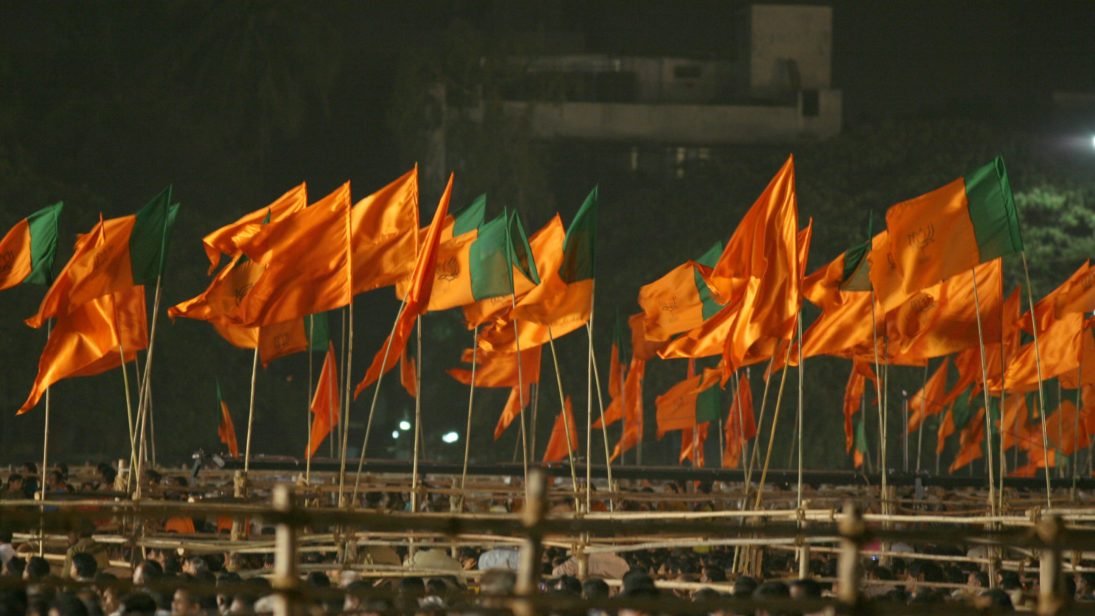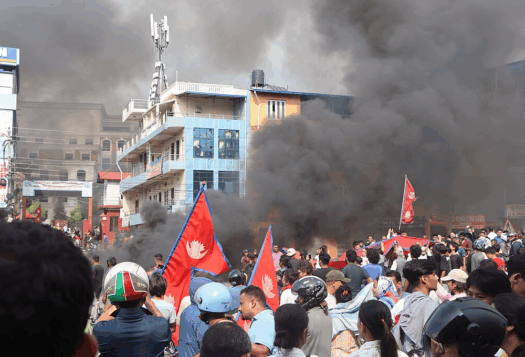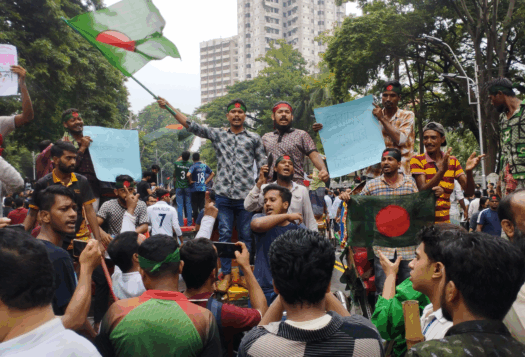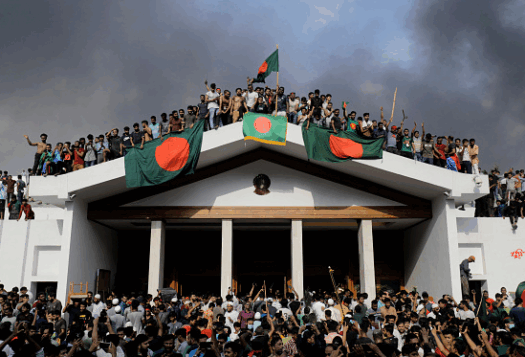
After the Jaish-e-Mohammad (JeM) orchestrated February’s Pulwama attack in Kashmir, India again appealed to the United Nations (UN) Security Council to list as a terrorist Masood Azhar, the Pakistan-based cleric and JeM leader, only to be foiled by China at the eleventh hour under the pretext of a “technical hold.” This was the fourth time Beijing blocked sanctions from being placed on Azhar on behalf of its all-weather-ally Pakistan. Indian media have been inundated with opinions calling for a possible Indian recourse, mostly stressing either an economic retaliation or diplomatic offensive.
This article traces a more structural domestic problem: the complete absence of a “China strategy” in the Indian political discourse. In comparing the political and public attitudes in India towards China and Pakistan, the prominence of Pakistan within the discourse is evident while there is a near absence of China. However, with the increasing salience of China in India’s electoral and political discourse, the Indian political establishment may soon be compelled to devise a clear China strategy.
The Regional Apathy
Immediately after China’s shielding of Masood Azhar, there was near silence among India’s regional political parties vis-à-vis China’s blockage. Of India’s seven national parties and fifty-odd state level parties, only the presidents of the Congress and the All India Majlis-e-Ittehadul Muslimeen (AIMIM), a minor party from Telangana, publicly criticized the prime minister for a lack of response. Presently, these non-BJP (Bharatiya Janata Party), non-Congress regional parties govern 13 out of the 29 states and have 232 out of 543 parliamentarians in the Lok Sabha (the lower house).
A reason for the apathy among these parties is the political division of labor in Indian foreign policymaking. No regional party playing a junior partner role in a coalition government at the federal level has ever occupied the Ministry of External Affairs.
A reason for the apathy among these parties is the political division of labor in Indian foreign policymaking. No regional party playing a junior partner role in a coalition government at the federal level has ever occupied the Ministry of External Affairs (MEA). The MEA berth has been filled by the party functioning as the coalition nucleus, be it the Congress, the BJP, or the Janata Party (a big-tent party preceding the BJP). Even during the short-lived Third Front governments (1989-1990, 1996-1998) in which a patchwork coalition of regional parties were in power in New Delhi, disgruntled Congress veterans such as IK Gujral and VC Shukla were brought in to handle the MEA. Jyoti Malhotra, Foreign Affairs Editor of Business Standard, points out that most diplomats are tempted to join either the BJP or Congress with rare exceptions.
While many regional parties such as the Shiv Sena, the Nationalist Congress Party (NCP), the Dravida Munnetra Kazhagam (DMK), the All India Anna Dravida Munnetra Kazhagam (AIADMK), and the Samajwadi Party (SP) operate media outlets in regional languages, one can hardly find contemplative pieces on foreign policy, let alone taking on the strategic challenge presented by China. The only exception to the absence of strategic thought is the Communist Party of India (Marxist) (CPIM), the electorally strongest communist party in India, which regularly ponders strategic issues and publishes them under its “Report on Political Developments.” However, when it comes to China, ideology clouds their strategic thinking. Historically, during the Sino-Indian conflict, they had chosen to remain soft on China. More recently, CPIM has called for New Delhi to play second fiddle to Beijing’s Belt and Road Initiative (BRI) and have shied away from calling out China over Masood Azhar. Given this warmth towards China—which does not reflect the growing concern in New Delhi’s foreign policy and security community about Beijing’s hard power capabilities—it seems the Indian Left is hardly contributing to India’s China strategy.
There seems to be an apparent retreat in foreign policymaking in general and on China-related issues in particular by non-BJP, non-Congress players. The only time state-level parties engage New Delhi is when there is some regional interest at stake, particularly the “bordering states.” In other words, the contribution of regional parties to national strategic thought is near zero—meaning that one in two Indians votes for a party that does have a systematic foreign policy outline and thus, does not partake in devising a China strategy.

China in the Parliament
The China inertia is well reflected in parliament too. There was a time in the early 1960s when both houses of parliament saw regular motions on the “International Situation,” which encompassed topics such as “What is our China Policy?” and “How to tame China?” In contrast, the outgoing Lok Sabha did not spend a single minute debating China. Compare this to the topic of Pakistan—the prime minister and both the Home and External Affairs ministers made regular statements and generous time was allocated for debates. During the Question Hour, the portion of a session of the Lok Sabha in which parliamentarians question administrative policy, merely 12 questions regarding China were taken up over the last five years.
The lack of parliamentary accountability has given the incumbent BJP a free hand on its China policy, however much they fumble. For example, one day Sushma Swaraj, the External Affairs Minister, refuses to endorse China’s one-China policy; another day, the MEA caves in to rename Taiwan as Chinese Taipei for Air India. The Indian political opposition has apparently taken no notice of these developments. Not a single member from the opposition benches raised any question regarding “Taipei” or “Wuhan” once in the parliament. On rare occasions, when strategic issues require parliamentary approval, the non-BJP, non-Congress members simply toe the line of their coalition. The 2008 Indo-U.S. Nuclear Deal vote is a case in point.
The “Experts”
The conventional wisdom in India is that foreign policy is a technocratic domain beyond party politics. Thus, for lawmakers, the keys to national interest lie with a small circle of foreign policy experts. Rahul Gandhi, the Congress president, when asked “how would you have handled the Doklam crisis differently?” obfuscated by saying “I don’t have the details of Doklam.” Recently, Congress outsourced the creation of its “National Security Strategy” entirely to Retd. Gen. D.S. Hooda, the architect of surgical strikes, for the Congress government to follow if voted to power. These cases suggest an excessive reliance on outside foreign policy “experts.”
The foreign policy establishment upon which Indian politicians rely seems to have unsettled priorities, leaving it unprepared for the China challenge. According to 2018 Annual MEA report, the Chinese-speaking contingent among the small community of serving diplomats is outnumbered by Arabic, Russian, French, and Spanish speakers alike, revealing a clear dearth of potential and preparedness. Additionally, from anecdotal evidence we know of the lack of synergy between the defense and diplomatic establishments in India. In 2008, when U.S. officials met Mr. Vijay Gokhale, then Joint Secretary East Asia Division (under which the China Desk operates) and current Foreign Secretary, to hand over a Congressional Report assessing China’s military might, Gokhale candidly expressed that India does not produce such “integrated reports.” According to the same U.S. cable, Mr. Gokhale “conjectured” that India’s Ministry of Defense might be producing such a report, but it was not shared with the MEA. The non-overlapping of spheres is far from what India needs to formulate an adequate China strategy.
Public Opinion
India’s unresolved issues with China, including Masood Azhar, are not provocative enough to warrant the same attention of the Indian public—but the situation is changing…If China-directed sentiments continue to rise among the Indian electorate, perhaps the Indian political establishment will be required to think more critically regarding China.
In contrast to attitudes towards Chinese activities at the UN, most regional leaders congratulated the Indian Air Force (IAF) for the airstrike on Pakistan in Balakot. This alacrity is partly due to heightened public awareness over the issue with Pakistan. After the release of IAF pilot Abhinandan, who had been captured by Pakistan during the air strike, a pan-India survey by India Today showed that 89 percent of respondents were aware of the episode. Another polling agency CVoter’s weekly tracker noted that after Pulwama 26 percent Indians thought “national security” (i.e. Pakistan) is the “primary issue” in 2019 elections. This tenacious and pervasive public sentiment regarding Pakistan, partly due to legacies of partition, the Kashmir dispute, the Hindu-Muslim divide, and numerous wars and unending skirmishes, has compelled the members of the Indian political establishment to adopt a position against Pakistan, soft or hard.
India’s unresolved issues with China, including Masood Azhar, are not provocative enough to warrant the same attention of the Indian public—but the situation is changing. Recently, the Confederation of All India Traders (CAIT) burned Chinese goods at 1500 places across India simultaneously. If China-directed sentiments continue to rise among the Indian electorate, perhaps the Indian political establishment will be required to think more critically regarding China.
The China Strategy
As neighbors, as rising powers, and as two nations vying for hegemony in South Asia, confrontations between India and China are bound to increase. Today there is a torpor vis-à-vis China within the Indian political discourse. Granted, China cannot substitute Pakistan in Indian imagination and political rallies are not a place to strategize. However, the public awareness of China’s activities that are not in the Indian interest and the ensuing public outrage may increase its salience in electoral and political discourse. In a model of democratic and parliamentary accountability, a heightened awareness among the population and other political players may compel the leaders to think hard on developing a “China strategy.”
***
Image 1: Al Jazeera English via Flickr
Image 2: Bloomberg via Getty


